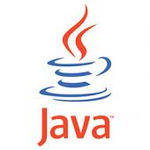Having Fun with Advent of Code
Tuesday, December 11th, 2018
It's Day 11 of Advent of Code, and I have to say that I'm having a great time this year. It helps to have a little spare time as they are working on the rearrangement of the groups with the acquisition, so I've got a little spare time most days.
I honestly expected to be using Swift, Clojure, ObjC - all mixed in there. This was the advantage of getting CodeRunner a little bit ago - that I could mix-n-match language to the problem based on the needs of each problem. But I have to say that I'm enjoying using Clojure 100% so far this year. It's just so good at what I need it to do... it's hard to find a need for another language.
I've also really enjoyed the times when the solution for the first part of the day is fine with my original implementation, but then the second part requires that I really re-think the solution and come up with a much more performant solution. Not always easy, but when I get something that really changes the scope of what can be done, it's a lot of fun.
One of the guys at The Shop pointed out that I'm doing the problems like Programming Golf - where the minimal solution is the best. And that's exactly what I enjoy about these - it's about a minimalist approach to the problems. What fun. 🙂








 In the work I'm doing, I've got a service that chooses to return a group of files in a standard Zip file format, and then I can easily store it in S3 using
In the work I'm doing, I've got a service that chooses to return a group of files in a standard Zip file format, and then I can easily store it in S3 using  This month has been a lot of work on the Auto App Package for The Shop. This is the package of legal documents that you get from your mortgage company after you give them all your information, and the details of the house you want to buy, and they work up a quote for the loan, and there are all these legal documents you need to sign before the loan goes into underwriting. It's a manual process, and they want it to be automatic.
This month has been a lot of work on the Auto App Package for The Shop. This is the package of legal documents that you get from your mortgage company after you give them all your information, and the details of the house you want to buy, and they work up a quote for the loan, and there are all these legal documents you need to sign before the loan goes into underwriting. It's a manual process, and they want it to be automatic.